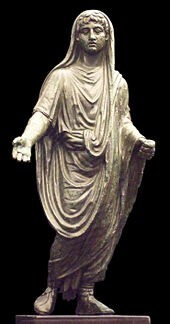글
천재성 = 지니어스 = 로마 게니우스 = 그리스 다이몬 = 기독교 영혼

카페내검색에 "천재성"으로 검색하면
나오는거는 다 요거~
미번은 관심있는 이들에게 패스★
(미번 부분 내용이 실하다는.......)
https://terms.naver.com/entry.naver?docId=3397658&cid=58143&categoryId=58143
게니우스
로마 신화에 등장하는 남성의 수호신으로 출생과 죽음, 성격과 운명을 관장한다. 개인이 죽으면 그의 게니우스도 소멸한다. 남성의 수호신 게니우스에 대응하는 여성의 수호신은 유노였다. 게
terms.naver.com
로마 신화에 등장하는 남성의 수호신으로 출생과 죽음, 성격과 운명을 관장한다. 개인이 죽으면 그의 게니우스도 소멸한다. 남성의 수호신 게니우스에 대응하는 여성의 수호신은 유노였다. 게니우스는 그리스 신화에 등장하는 정령 다이몬(데몬)과 동일시된다. 천재를 뜻하는 영어 단어 ‘genius’는 게니우스에서 유래하였다.
외국어표기 복수형: 게니이(Genii)
구분 전원의 신
상징 남성의 수호신, 사물에 내재하는 영적 본질
어원 생산하다, 만들어내다
그리스 신화 다이몬(데몬)
신화 이야기
남성의 수호신 게니우스
게니우스는 로마 신화에 등장하는 남성의 수호신이다. 게니우스는 각 개인 안에 내재하는 영적 존재로서 그들의 개인적 특성과 운명을 관장하고 출생과 생식 능력에도 관여한다. 개인이 죽으면 그의 게니우스도 소멸된다. 본래 게니우스는 후손들을 지켜주는 조상신이었는데 여기서 개인들의 삶을 보살펴주는 수호신으로 발전하였다. 로마인들은 자신의 게니우스에게 제물을 바치며 자신이 어려운 상황에 처했을 때 특별한 도움을 기대하였다. 게니우스의 축일은 당사자의 생일이었다.
사물에 내재하는 영적 본질로서의 게니우스
게니우스는 대상 안에 내재하는 일종의 작용력으로 이해되었으므로 비단 개인들뿐만 아니라 군대나 단체 같은 집단이나 도시, 시장, 극장 같은 장소에도 깃들어 있다고 믿어졌다. 심지어 로마의 게니우스나 로마 시민의 게니우스도 있었다. 로마인들은 자신의 게니우스나 다른 사람의 게니우스에 걸고 맹세하기를 즐겼는데, 제정시대 황제의 게니우스는 특별한 힘을 지니고 있다고 여겨졌다. 황제의 게니우스는 황제 자신이 다른 인간들보다 우월한 것과 마찬가지로 다른 개인들의 게니우스보다 우월한 능력을 지니고 있었기 때문이다. 로마의 초대황제 아우구스투스의 게니우스에 대한 숭배는 여기서 비롯되었다. 모든 존재의 게니우스를 구별하는 경향은 점점 더 심해져서 나중에는 신들에게도 각자의 게니우스가 있다고 믿었다. 그래서 사람들은 마르스의 게니우스나 유피테르의 게니우스에게 제물을 바치기도 했다.
게니우스의 형상
게니우스는 주로 강한 근육질의 상체를 드러내고 있는 수염이 난 성인 남자의 모습으로 등장하지만, 경우에 따라 날개가 달린 나체의 미소년이나 지혜로운 노인의 형상으로도 표현되었다. 대개 손에는 풍요의 뿔이나 제물이 담긴 접시를 들고 있다. 장소의 게니우스는 뱀의 형상으로 표현되기도 한다. 남성의 수호신으로서의 게니우스에 대응하는 여성의 수호신은 유노(헤라)였다. 로마 신화의 게니우스는 그리스 신화의 다이몬과 동일시되기도 한다.
https://en.wikipedia.org/wiki/Genius_(mythology)
Genius (mythology) - Wikipedia
From Wikipedia, the free encyclopedia Jump to navigation Jump to search Divine nature in ancient Roman religion Winged genius facing a woman with a tambourine and mirror, from southern Italy, about 320 BC. In Roman religion, the genius (Latin: [ˈɡɛnɪ.
en.wikipedia.org
In Roman religion, the genius (Latin: [ˈɡɛnɪ.ʊs]; plural geniī) is the individual instance of a general divine nature that is present in every individual person, place, or thing.[1] Much like a guardian angel, the genius would follow each man from the hour of his birth until the day he died.[2] For women, it was the Juno spirit that would accompany each of them.
로마 종교에서 천재(라틴어: [ˈɡɛnɪ.ʊs]; 복수형 geniī)는 모든 개인, 장소 또는 사물에 존재하는 일반적인 신성한 본성의 개별 사례입니다. 수호 천사처럼 천재는 태어난 시간부터 죽을 때까지 각 사람을 따라갈 것입니다. 여성의 경우, 그들 각자를 동반하는 것은 주노 스피릿이었습니다.
Nature
본성
Each individual place had a genius (genius loci) and so did powerful objects, such as volcanoes. The concept extended to some specifics: the genius of the theatre, of vineyards, and of festivals, which made performances successful, grapes grow, and celebrations succeed, respectively. It was extremely important in the Roman mind to propitiate the appropriate genii for the major undertakings and events of their lives.
각 개별 장소에는 게니어스=천재성(genius loci)가 있었고 화산과 같은 강력한 물체도 마찬가지였습니다. 이 개념은 몇 가지 세부 사항으로 확장되었습니다. 연극의 게니어스=천재성, 포도원의 게니어스=천재성, 공연을 성공적으로 만든 축제, 포도 재배 및 축하 행사가 각각 성공했습니다. 그들의 삶의 주요 사업과 사건을 위해 적절한 천재를 달래는 것은 로마인의 마음에서 매우 중요했습니다.
Thus man, following the dictates of his heart, venerated something higher and more divine than he could find in his own limited individuality, and brought to "this great unknown of himself" offerings as a god; thus compensating by veneration for the indistinct knowledge of his divine origin.
따라서 사람은 마음의 지시에 따라 자신의 제한된 개성에서 찾을 수 있는 것보다 더 높고 신성한 것을 숭배하고 "그 자신의 위대한 미지"라는 신에게 제물을 바쳤습니다. 따라서 그의 신성한 기원에 대한 불명확한 지식에 대한 존경으로 보상합니다.
The Christian theologian Augustine equated the Christian soul with the Roman genius, citing Varro as attributing the rational powers and abilities of every human being to their genius.
기독교 신학자 아우구스티누스는 기독교 영혼을 로마 게니어스=천재성과 동일시하면서 바로가 모든 인간의 이성적 힘과 능력을 게니어스=천재성에 기인한다고 인용했습니다.
Specific genii
Although the term genius might apply to any divinity whatsoever, most of the higher-level and state genii had their own well-established names. Genius applied most often to individual places or people not generally known; that is, to the smallest units of society and settlements, families and their homes. Houses, doors, gates, streets, districts, tribes, each one had its own genius.[5] The supreme hierarchy of the Roman gods, like that of the Greeks, was modelled after a human family. It featured a father, Jupiter, who was also the supreme divine unity, and a mother, Juno, queen of the gods. These supreme unities were subdivided into genii for each individual family; hence, the genius of each female, representing the female reproductive power, was a Juno. The male power was a Jupiter.[6]
The juno was worshipped under many titles:
● Iugalis, "of marriage"
● Matronalis, "of married women"
● Pronuba, "of brides"
● Virginalis, "of virginity"
Genii were often viewed as protective spirits, as one would propitiate them for protection. For example, to protect infants one propitiated a number of deities concerned with birth and childrearing: Cuba ("lying down to sleep"), Cunina ("of the cradle") and Rumina ("of breast-feeding").[7] Certainly, if those genii did not perform their proper function well, the infant would be in danger.
Hundreds of lararia, or family shrines, have been discovered at Pompeii, typically off the atrium, kitchen or garden, where the smoke of burnt offerings could vent through the opening in the roof. Each lararium features a panel fresco containing the same theme: two peripheral figures (Lares) attend on a central figure (family genius) or two figures (genius and juno) who may or may not be at an altar. In the foreground is one or two serpents crawling toward the genius through a meadow motif. Campania and Calabria preserved an ancient practice of keeping a propitious house snake, here linked with the genius.[8] In another, unrelated fresco (House of the Centenary) the snake-in-meadow appears below a depiction of Mount Vesuvius and is labelled Agathodaimon, "good daimon", where daimon must be regarded as the Greek equivalent of genius.
History of the concept
Origin
The English term is loaned from Lat. genius m. "household guardian spirit"; earlier, "innate male power of a race or clan", deriving from the Indo-European root *g̑enh₁-, "give birth, produce", which is also reflected in Lat. gignō "give birth" and gēns, gentis f. "tribe, people".[9][10]
The genius appears explicitly in Roman literature as early as Plautus, where one character jests that the father of another is so avaricious that he uses cheap Samian ware in sacrifices to his own genius, so as not to tempt the genius to steal it.[11] In this passage, the genius is not identical to the person, as to propitiate oneself would be absurd, and yet the genius also has the avarice of the person; that is, the same character, the implication being, like person, like genius.
Horace, writing when the first emperor was introducing the cult of his own genius, describes the genius as "the companion which controls the natal star; the god of human nature, in that he is mortal for each person, with a changing expression, white or black".[12]
Imperial genii
Octavius Caesar on return to Rome after the final victory of the Roman Civil War at the Battle of Actium appeared to the Senate to be a man of great power and success, clearly a mark of divinity. In recognition of the prodigy they voted that all banquets should include a libation to his genius. In concession to this sentiment he chose the name Augustus, capturing the numinous meaning of English "august." The household cult of the Genius Augusti dates from this period. It was propitiated at every meal along with the other household numina.[13] Thus began the tradition of the Imperial cult, in which Romans worshipped the genius of the emperor rather than the person.
If the genius of the imperator, or commander of all troops, was to be propitiated, so was that of all the units under his command. The provincial troops expanded the idea of the genii of state; for example, from Roman Britain have been found altars to the genii of Roma, Roma aeterna, Britannia, and to every legion, cohors, ala and centuria in Britain, as well as to the praetorium of every castra and even to the vexillae.[14] Inscriptional dedications to genius were not confined to the military. From Gallia Cisalpina under the empire are numerous dedications to the genii of persons of authority and respect; in addition to the emperor's genius principis, were the geniuses of patrons of freedmen, owners of slaves, patrons of guilds, philanthropists, officials, villages, other divinities, relatives and friends. Sometimes the dedication is combined with other words, such as "to the genius and honor" or in the case of couples, "to the genius and Juno."[15]
Surviving from the time of the empire hundreds of dedicatory, votive and sepulchral inscriptions ranging over the entire territory testify to a floruit of genius worship as an official cult. Stock phrases were abbreviated: GPR, genio populi Romani ("to the genius of the Roman people"); GHL, genio huius loci ("to the genius of this place"); GDN, genio domini nostri ("to the genius of our master"), and so on. In 392 AD with the final victory of Christianity Theodosius I declared the worship of the Genii, Lares and Penates to be treason, ending their official terms.[16] The concept, however, continued in representation and speech under different names or with accepted modifications.
Roman iconography
Coins
The genius of a corporate social body is often a cameo theme on ancient coins: a denarius from Spain, 76–75 BC, featuring a bust of the GPR (Genius Populi Romani, "Genius of the Roman People") on the obverse;[17] an aureus of Siscia in Croatia, 270–275 AD, featuring a standing image of the GENIUS ILLVR (Genius Exercitus Illyriciani,[18] "Genius of the Illyrian Army") on the reverse;[19] an aureus of Rome, 134–138 AD, with an image of a youth holding a cornucopia and patera (sacrificial dish) and the inscription GENIOPR, genio populi Romani, "to the genius of the Roman people," on the reverse.
https://cafe.naver.com/purifymoon/2267
아그리파의 오컬트 철학 3권 26장 점성학으로 천재성의 이름을 찾는 법
대한민국 모임의 시작, 네이버 카페
cafe.naver.com
https://cafe.naver.com/purifymoon/2268
점성학으로 자신의 천재성(Genius) 이름찾기와 형상부여법ㅋ
대한민국 모임의 시작, 네이버 카페
cafe.naver.com
https://cafe.naver.com/purifymoon/2273
점성학 천재성 이름과 텔레스마틱 이미지 찾기 모리누스 상세예제
대한민국 모임의 시작, 네이버 카페
cafe.naver.com
https://cafe.naver.com/purifymoon/2269
점성학 천재성의 이름과 텔레스마틱 이미지 예제
대한민국 모임의 시작, 네이버 카페
cafe.naver.com
https://cafe.naver.com/purifymoon/4050
탄생시로 구하는 천재성 시길 예제 3가지★
대한민국 모임의 시작, 네이버 카페
cafe.naver.com
https://cafe.naver.com/purifymoon/2418
천재성의 텔레스마틱 이미지를 사용한 명상법ㅋ
대한민국 모임의 시작, 네이버 카페
cafe.naver.com
https://cafe.naver.com/purifymoon/2266
성수호천사(HGA) : 절대 혼자가 아니야 By 프라터 루퍼스 오퍼스
대한민국 모임의 시작, 네이버 카페
cafe.naver.com
https://cafe.naver.com/purifymoon/4012
아브라멜린에 대한 모든 대화를 중단시키는 방법 by 아론 레이치
대한민국 모임의 시작, 네이버 카페
cafe.naver.com
https://cafe.naver.com/purifymoon/4011
성수호천사에 대한 우리의 재평가 by 아론 레이치
대한민국 모임의 시작, 네이버 카페
cafe.naver.com
https://cafe.naver.com/purifymoon/3875
성스러운 다이몬 파트1 역사 (1) by 프라터 아쳐
대한민국 모임의 시작, 네이버 카페
cafe.naver.com
'Realize' 카테고리의 다른 글
| 절판, 신간 등 모든 책 무료로 구해 보는 방법★ 도서관! (0) | 2022.03.09 |
|---|---|
| 베르사유 궁전의 필수 에티켓! 노크★ (0) | 2022.03.09 |
| 자네 쫌 하는군......... (0) | 2022.03.08 |
| 번역하고 경험치 쌓아요~ (0) | 2022.03.07 |
| 마법사들의 전투법중 하나ㅋ (0) | 2022.03.07 |

